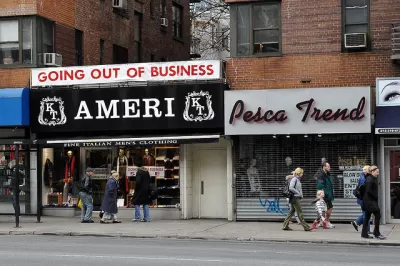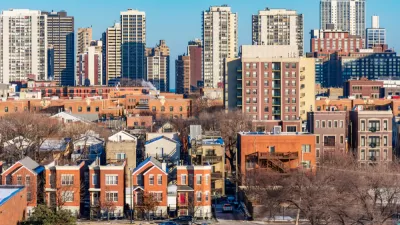According to data compiled by the Lincoln Institute, public revenue and spending on the local and municipal levels hasn't truly bounced back following the Great Recession.

The Lincoln Institute of Land Policy's Fiscally Standardized Cities (FiSC) database show only a modest level of local public sector recovery since 2008. "Created in 2013 and updated annually, the FiSC database provided the country's first meaningful comparison of local government finances at the city level by untangling the complex web of governments within each city."
FiSC tracks revenue sources like property tax, user charges, and state and federal aid, as well as "spending for capital outlays and for current operating expenses for a wide array of services including education, public safety, transportation, health and social services, and natural resources, parks, solid waste and sewage."
"In the 150 cities in the database, per capita revenues were still 3.6 percent lower in 2015 than before the Great Recession after adjusting for inflation according to an analysis of new data from the U.S. Census Bureau."
"Despite small increases in 2014 and 2015, overall per-capita spending in 2015 was still two percentage points lower in the average city than in 2007, after adjusting for inflation. Capital outlays were nearly 15 percent below 2007 levels, reflecting continued underinvestment in public infrastructure."
FULL STORY: America’s large cities show signs of long, slow recovery: new Lincoln Institute data

Alabama: Trump Terminates Settlements for Black Communities Harmed By Raw Sewage
Trump deemed the landmark civil rights agreement “illegal DEI and environmental justice policy.”

Planetizen Federal Action Tracker
A weekly monitor of how Trump’s orders and actions are impacting planners and planning in America.

Why Should We Subsidize Public Transportation?
Many public transit agencies face financial stress due to rising costs, declining fare revenue, and declining subsidies. Transit advocates must provide a strong business case for increasing public transit funding.

Understanding Road Diets
An explainer from Momentum highlights the advantages of reducing vehicle lanes in favor of more bike, transit, and pedestrian infrastructure.

New California Law Regulates Warehouse Pollution
A new law tightens building and emissions regulations for large distribution warehouses to mitigate air pollution and traffic in surrounding communities.

Phoenix Announces Opening Date for Light Rail Extension
The South Central extension will connect South Phoenix to downtown and other major hubs starting on June 7.
Urban Design for Planners 1: Software Tools
This six-course series explores essential urban design concepts using open source software and equips planners with the tools they need to participate fully in the urban design process.
Planning for Universal Design
Learn the tools for implementing Universal Design in planning regulations.
Caltrans
Smith Gee Studio
Institute for Housing and Urban Development Studies (IHS)
City of Grandview
Harvard GSD Executive Education
Toledo-Lucas County Plan Commissions
Salt Lake City
NYU Wagner Graduate School of Public Service





























